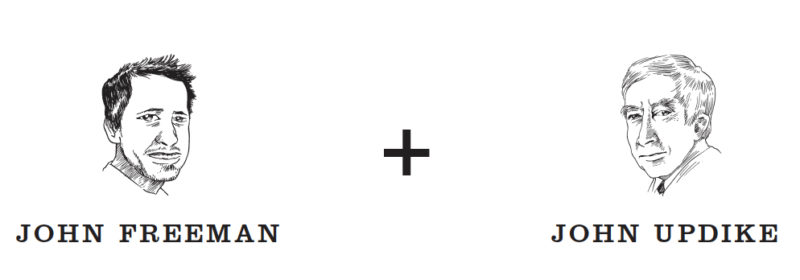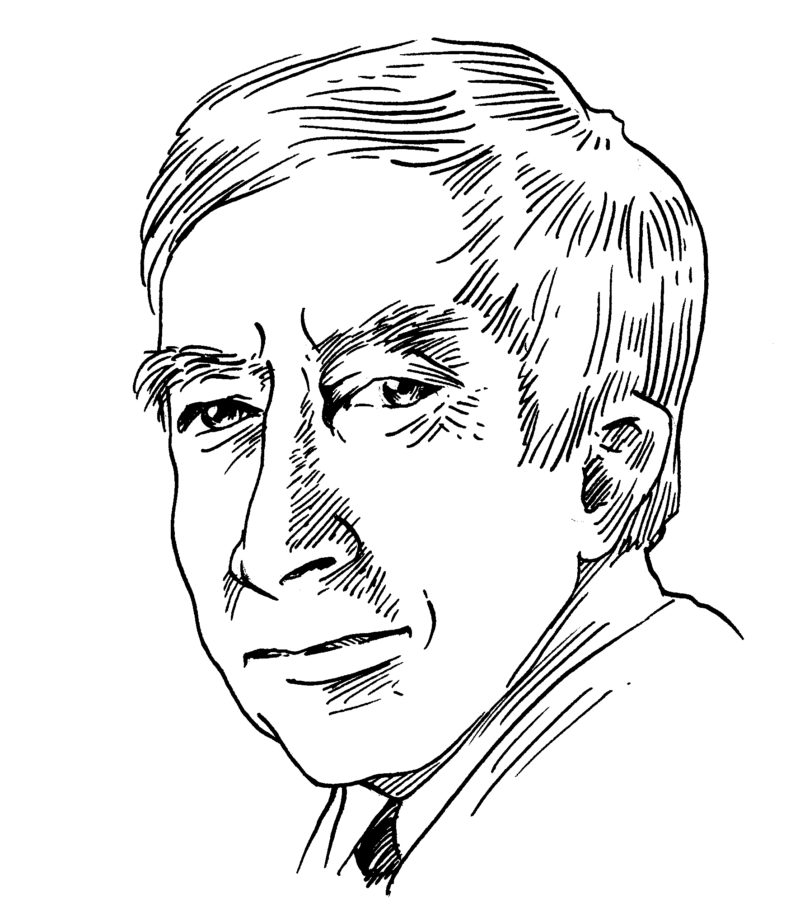
My first apartment in New York was a flat in a Brooklyn brownstone owned by a magazine editor and her silent, bookish husband. I spent a lot of time before a long, dusty bookshelf that ran parallel to the staircase in their home. To get a volume from the “F” section, you had to climb halfway up the stairs and lean out over the banister. One day, the silent, bookish husband caught me craning over the ten-foot drop, Flaubert’s Sentimental Education in my hands. Suddenly he became talkative. He told of disappearing into Proust over a teenage summer on Fire Island. How Tolstoy was a passionate college-age fling. A late reader, I envied his library and these lazy, literary summers. I asked him what I should read. First he pulled down a volume of short stories by John Cheever, then he gave me Rabbit, Run, by John Updike.
The Cheever I put down without finishing: the stories felt whiny and overdetermined, their broadcast mysteries hardly mysterious. But Updike was another thing. I blasted through Rabbit, Run in a few days, ferrying it into the city in a muggy trance. In college, I had fallen for Jack Kerouac—and the story of Sal Paradise and his love of the American road. Here was that book’s exquisite opposite—the story of a man who made himself a prison of small-town domestic life, a man whose big countercultural act was not to light out for the open highway, but to get in a car, drive across town, and sleep with his mistress.
I felt an instant connection with Updike’s fiction. I had lived in eastern Pennsylvania for six years as a child, and the region’s circumambient embrace felt like a third parent to me growing up. Now that I was an adult, I could see how such a life might have become stifling. In Updike’s prose, it was gorgeously so.
One book led to another, and before long, my Updike appreciation had turned to mania. I slowly amassed a complete set of first editions of his books—fifty in all—and my girlfriend Leslie, bemused and never smitten by Updike, often accompanied me to bookstores to get them signed. When I decided I, too, wanted to be a writer, I did what Updike had done forty years before me. I quit New York, and moved with my mate into a white clapboard house in New England. Leslie took a job in technology research, and I began to write. Only I didn’t. Instead, I spent my time reading Updike, increasingly aware that at my age he had published a volume of light verse and a short novel, but also more and more...
You have reached your article limit
Sign up for a digital subscription and continue reading all new issues, plus our entire archives, for just $1.50/month.
Already a subscriber? Sign in





